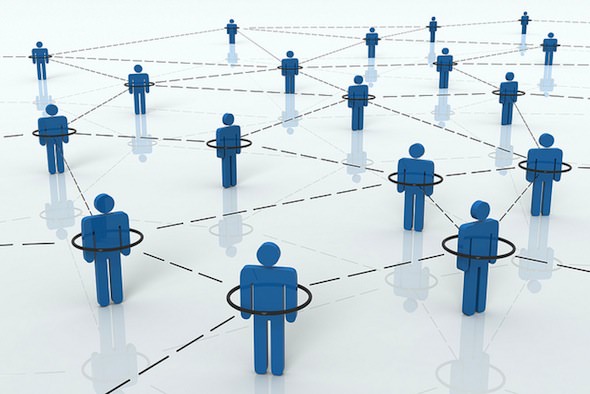Social Networks Diminish Personal Well-Being, Researchers Say
Two researchers set out to determine "whether the use of online networks reduces subjective well-being and if so, how," the MIT Technology Review reports.
A two-year survey of 50,000 people determined that a lack of face-to-face contact in interactions online — especially on social networks like Facebook and Twitter — reduced feelings of personal well-being.
Reduced well-being can be interpreted to mean reduced mental health.
Fabio Sabatini at Sapienza University of Rome in Italy and Francesco Sarracino at STATEC in Luxembourg reviewed answers from residents of 24,000 Italian households recorded annually by the Italian National Institute of Statistics. MIT Technology Review described the study, which drew data from 2010 and 2011, as especially important because it is “the first time that the role of online networks has been addressed in such a large and nationally representative sample.”
The conclusion is thus more reliable than previous studies that typically surveyed self-selecting undergraduate populations — a category of persons too narrow to allow researchers to extrapolate findings to the general population.
The Review described the particulars of the research as follows:
The survey specifically asks the question “How satisfied are you with your life as a whole nowadays?” requiring an answer from extremely dissatisfied (0) to extremely satisfied (10). This provides a well-established measure of subjective well-being.
The survey also asks other detailed questions such as how often people meet friends and whether they think people can be trusted. It also asked about people’s use of online social networks such as Facebook and Twitter.
This allowed Sabatini and Sarracino to study the correlation between subjective well-being and other factors in their life, particularly their use of social networks.
The researchers found interpersonal trust made possible by face-to-face interaction to have a reinforcing effect on personal well-being. An absence of face-to-face interactions was associated with an experience of diminished well-being.
Sabatini and Sarracino put it precisely: “We find that online networking plays a positive role in subjective well-being through its impact on physical interactions, whereas [the use of] social network sites is associated with lower social trust. … The overall effect of networking on individual welfare is significantly negative.”
Apart from a lack of face-to-face contact, what else was chipping away people’s sense of wellness? Discrimination and hate speech, the Review wrote. Read more about that topic here.
— Posted by Alexander Reed Kelly
Your support matters…Independent journalism is under threat and overshadowed by heavily funded mainstream media.
You can help level the playing field. Become a member.
Your tax-deductible contribution keeps us digging beneath the headlines to give you thought-provoking, investigative reporting and analysis that unearths what's really happening- without compromise.
Give today to support our courageous, independent journalists.









You need to be a supporter to comment.
There are currently no responses to this article.
Be the first to respond.